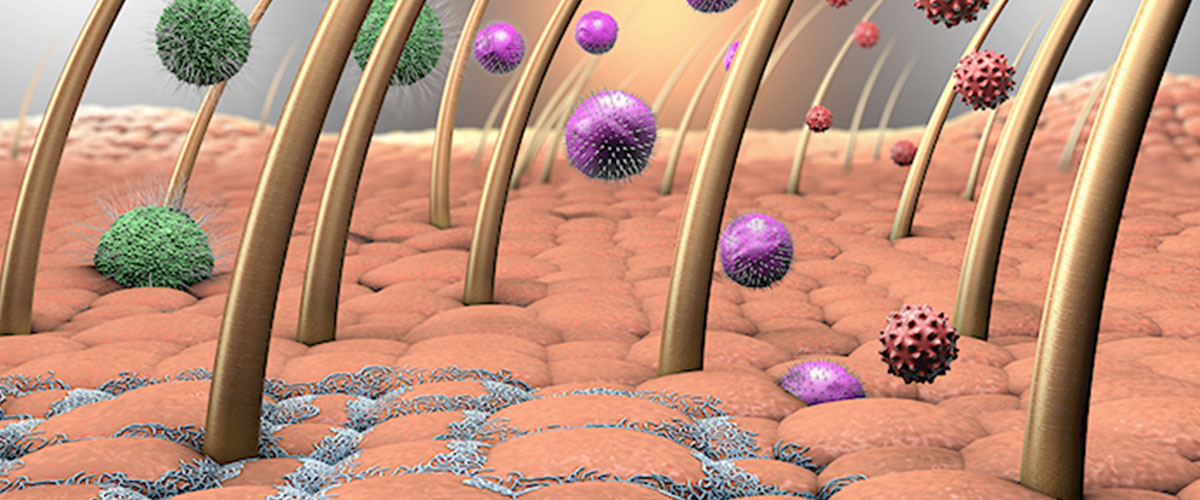The skin is the body’s largest organ. A well-known fact that most of us have heard at least once, be it at school or in a quiz of some kind. We all also know that the skin is important for things such as appearance, temperature regulation and, perhaps most importantly, protection. But what exactly do we mean by ‘protection’? That is where the skin’s barrier function comes in.
The skin’s barrier function relates to its ability to act as the body’s first line of defence to the outside world; keeping all the good things like moisture in and all the bad things like irritants and allergens out.
Rather than one simple layer, the skin is actually made up of three primary layers: the hypodermis (deepest layer), the dermis (middle layer) and the epidermis (upper layer). These layers are each made up of different sublayers, but it is one sublayer in particular that is crucial to the skin’s barrier function: the outermost layer of the epidermis, also called the stratum corneum.
The stratum corneum literally forms the protective barrier between the inner body and the outer world1; it is the vanguard that helps to keep us healthy and safe. The stratum corneum is made up of approximately 15-25 layers of dead skin cells, called corneocytes, embedded within a lipid bilayer2 which forms a sort of “brick and mortar” wall3.





